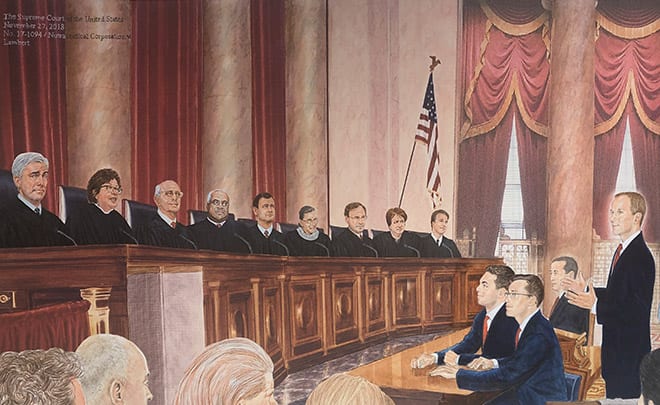
On Tuesday, November 27, partner John Hueston argued before the U.S. Supreme Court in a matter that has significant implications for class action cases. The question presented is whether Rule 23(f) of the Federal Rules of Civil Procedure—and mandatory claims-processing rules in general—are necessarily susceptible to equitable tolling. This question of first impression has resulted in split rulings from the U.S. Courts of Appeal.
Hueston argued that Rule 23(f), which provides a party with 14 days from the entry of a class certification order to file a petition for permission to appeal with the court of appeals, is an emphatic and mandatory claim-processing rule that is not subject to judge-made exception. Hueston further argued that the Ninth Circuit Court of Appeals had improperly created “broad and unprecedented equitable exceptions” to excuse the Class Plaintiff’s late 23(f) petition, by essentially nullifying Rule 23(f)’s deliberately narrow 14-day interlocutory appeal window. As Hueston explained, Rule 23(f) was specifically crafted “to minimize the disruption and delay in the context of class action cases.”
This appeal arose after Hueston Hennigan successfully obtained class decertification at the district court, and Class Plaintiff/Appellee Lambert missed the deadline set forth in Rule 23(f), to file a petition for permission to appeal the order in the Ninth Circuit. The Ninth Circuit nevertheless found that Rule 23(f) was subject to equitable exceptions, and then applied those exceptions to excuse Lambert’s late filing and reverse the district court. Hueston Hennigan sought certiorari of the Ninth Circuit’s decision, which the Supreme Court granted in June.
Nutraceutical was also represented at the U.S. Supreme Court by John Hueston, Joseph Reiter and Michael Todisco.
See Law360 article, “Justices Weigh Missed Deadline In Nutraceutical False Ad Suit.”